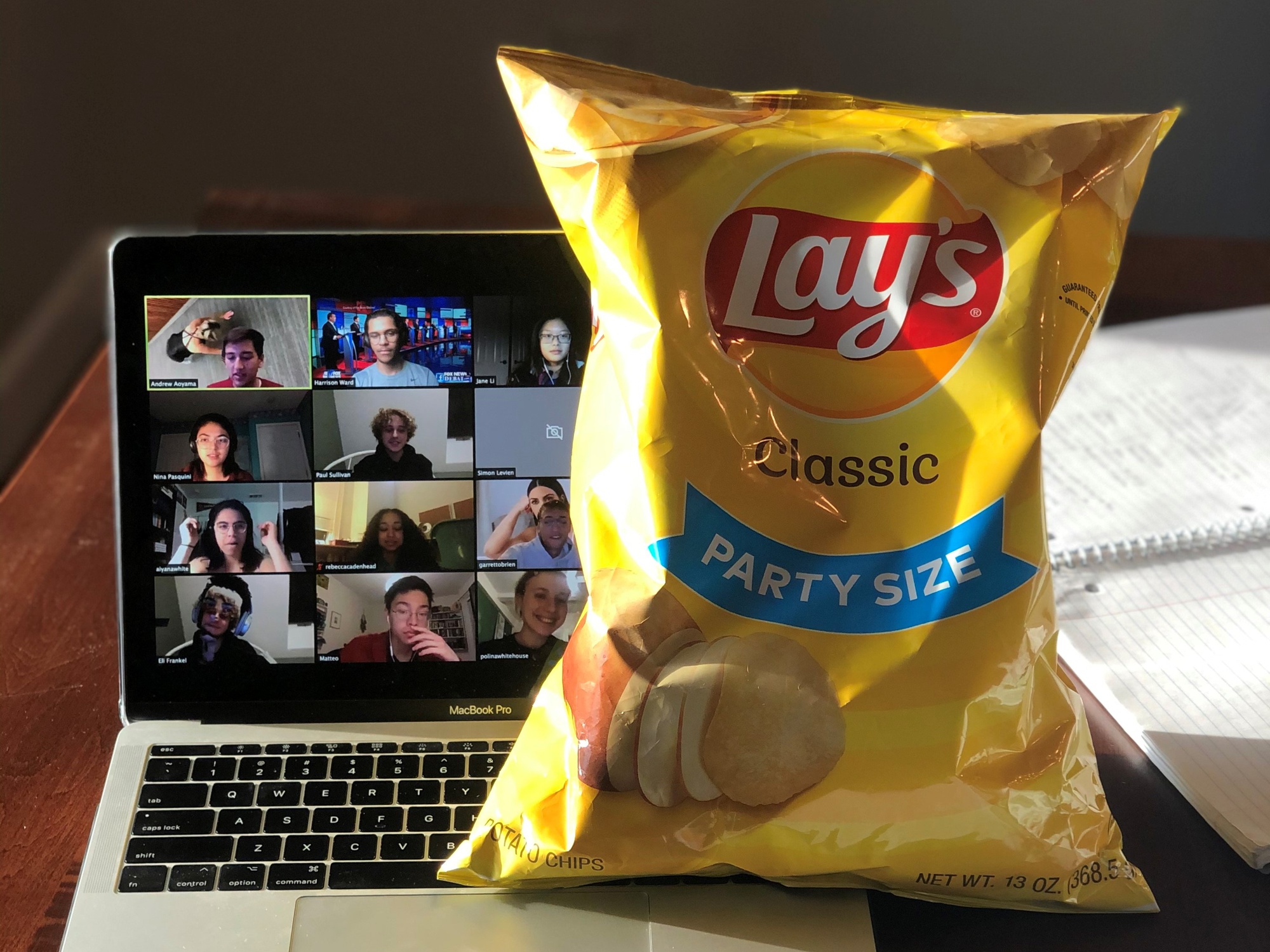
Me and My Chip Bag Versus the World
It’s about 6:30 p.m. on a Sunday. I’m standing on my porch watching the sun set, eating a family-sized bag of Lay’s chips. I realize that per Ward-household-quarantine-protocol, since I put my whole hand in the chip bag, the rest of the Lay’s are now mine. This is to be the biggest triumph of my day.
I spent today, as I have spent every other day since coming home, half-heartedly trying to do my schoolwork while listening to hours of podcasts. I have distracted myself by going through old family photo books with my dad and trying to guess which family members are which. Like the rest of the United States, I watched all of “Tiger King” in 48 hours.
Scattered amongst the never-ending stream of tweets about Joe Exotic — the Tiger King, for those who may not know — I see a flurry of tweets from Jason Furman ’92. Furman is one of my Economics professors and a former Obama administration big shot. His latest claim to fame is writing the op-ed that became the foundation for one of the biggest stimulus bills in U.S. history — in an hour, from his couch.
Furman followed the article with a storm of tweets about what he sees as the best direction for U.S. policy to take over the coming months. This morning, I tweeted a conspiracy theory about the “Air Bud” series.
***
My mother returns from work early on a Monday afternoon. She gets out of her car, leaves her stethoscope and house call equipment in a trash bag in the garage, and carefully hangs her lab coat by the door. She sits at her makeshift desk and begins to type notes on the patients she saw today — the exhaustion is evident in her face, her posture, her voice.
For me, one of the most unsettling parts about this pandemic is the feeling of powerlessness. I can’t leave my home, visit friends or family, or even see the virus that is causing this crisis. This feeling is made worse by watching my mother, a geriatric nurse practitioner, do her best to continue to care for her elderly patients and calm her panicked colleagues. At dinner, in a tired voice, she tells me several of her coworkers are thinking of leaving medicine once the crisis is over. I try to not think about what would happen if my mother contracted the virus. She is 60 and has asthma. Everything I can think to do in the face of these circumstances seems tiny and wholly inconsequential.
My mother is worried that as the crisis worsens, she may be drafted to the front lines. I imagine her donning layers of protective gear as she prepares to treat her patients: a gown, gloves, two masks. Given her frequent conversations over the phone about the dwindling stock of protective equipment in the area, this image is becoming increasingly implausible. I imagine droves of neighbors coming to my mother’s aid to deliver boxes of surgical gloves, like some dystopian reenactment of “Dunkirk.”
Recently, my mother got an email notifying her that, regardless of their specialty, doctors and nurses may be reassigned to care for COVID-19 patients. She tells me her biggest fear is being sent to triage patients. Under normal circumstances, triage entails classifying patients by the severity of their condition. In these circumstances, triage is a much grimmer task. Whoever is running triage will be responsible for making life and death decisions. This responsibility weighs particularly heavily on my mother, who is devoutly religious. She entered the field to heal the sick and, above all, “to do no harm.” In this situation, she would be put in the unimaginable position of deciding which of her patients are most worthy of receiving life-saving care.
***
I don’t know what to do. I don’t know how to best comfort my mother. I don’t know how to best help the people around me. I don’t know how to best help my friends. I don’t even know how to muster the right amount of empathy for people living next door, let alone people across the country or across oceans.
This isolation from my community, my family, my world writ large, makes it so much harder to contextualize the global suffering COVID-19 has caused. I often like to spend large chunks of my days feeling sorry for myself and missing the community I left on campus. Being shuttered away from the world allows me to amplify my sense of self-pity until it feels bigger and more important than the incomprehensible death tolls and suffering I hear about on the news. How can that pain be real when the only world I know is my bedroom, bathroom, and kitchen?
I am deeply uncomfortable with all this not knowing. I’m almost done with my bag of Lay’s. My mind is racing but struggling to find traction, so I am left to pace inside my bedroom and wonder why the kids down the street are outside with their friends all the damn time and not locked inside like the rest of us. I suppose the one thing I do have going for me is that I have all the time in the world to figure it out.
— Magazine writer Harrison R. T. Ward can be reached at harrison.ward@thecrimson.com and on Twitter at @H_Dubs10.


